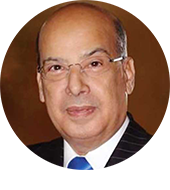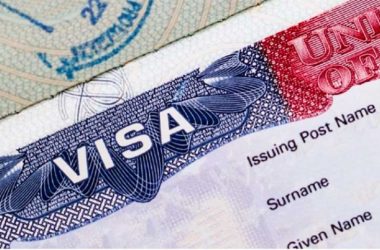
Contrary to all who dismissed it as impossible, the 14 independent member states of the Caribbean Community (CARCOM) displayed strong solidarity at the Organisation of American States on Wednesday, May 31.
In doing so, the CARICOM countries showed the ‘soft power’ that they can wield on the hemispheric stage when they maintain solidarity and unity of purpose. It was a moment for unbridled CARICOM pride.
The occasion was a ‘Meeting of Consultation of Ministers of Foreign Affairs’ of the 34-member group at its headquarters in Washington, the U.S. capital. The convocation of the meeting to discuss ‘the situation in Venezuela’ was itself highly controversial. When the vote was taken in the OAS Permanent Council, those in favour of the meeting barely won. The vote was 18 in favour, 1 against, 13 abstentions and 2 absent. The CARICOM countries were themselves divided with 5 voting in favour, 8 abstaining and 1 absent.
Heads of Government intervened just five days before the meeting, motivated by their desire to maintain CARICOM solidarity and to meet the obligation, set out in the CARICOM Treaty, to “seek to ensure, as far as practicable, the adoption of Community positions on major hemispheric and international issues”. It was clear to them that with a block of 14 votes among 34 in the OAS, CARICOM countries, acting collectively, have the capacity to determine the outcomes of fundamental issues, particularly as a vote of two-thirds of the membership is required for substantial matters. Equally clear was that if CARICOM countries failed to act collectively they would weaken themselves individually and collectively, serving the interests of others.
The leaders would also have been motivated by the circumstances in Venezuela and what the rules of the OAS, as set out in the Charters, allowed the members of the Organisation to do. Perusing the rules of the OAS, they would have been reminded, in a compelling manner, that Article 1 of the OAS Charter commits all member states to non-interference and non-intervention in the internal affairs of states. There is a similar injunction in the Charter of the United Nations.
Against this background, CARICOM leaders decided that while their governments would participate in the Meeting of Consultation, they had to do so in a non-interventionist manner, and focus on calling for immediate cessation of violence, concrete plans for the restoration of peace and stability, absolute respect for human rights, the rule of law and constitutional processes, and commitment by all parties in Venezuela to engage in a renewed dialogue, and to offer any help that might be requested by the government of Venezuela to meet the serious challenges facing the country.
That was the position adopted by CARICOM countries collectively at the May 31 Meeting of Consultation. In stating their position at the meeting, CARICOM countries spoke through one voice, the Foreign Minister of the Bahamas Darren Henfield, who delivered an agreed CARICOM statement. CARICOM also submitted a single draft declaration for the consideration of the OAS meeting. To facilitate that single CARICOM draft, Antigua and Barbuda withdrew a draft it had submitted to the OAS Secretariat on 23 May. As the representative of Antigua and Barbuda, I stated my government’s “full and unqualified support for the draft declaration prepared by all CARICOM countries”.
In the end, the meeting was faced with two draft declarations – the single CARICOM draft, and a draft sponsored by the United States, Canada, Mexico, Peru and Panama. Had the two draft declarations been put to a vote, neither of them would have been adopted neither could muster the required 22 votes. The meeting would have ended in disarray and without conclusion except to demonstrate that the member countries were incapable of reaching an agreement on how best to treat the situation in Venezuela.
In truth, the group of bigger nations had hoped that they would have been able to break CARICOM solidarity and secure the votes of some CARICOM countries to give them the two-thirds majority required for the adoption of their draft declaration.
Recognising that a vote on each of the two declarations would manifest a weak and ineffective OAS, CARICOM countries again moved to save the day. In a huddle of CARICOM countries, representatives decided to propose to the Chair of the Meeting of Consultation, the Foreign Minister of Guatemala Carlos Raul Morales, that the meeting be adjourned to reconvene before June 19, and that, in the meantime, Ambassadors at the OAS be instructed to reconcile the two draft declarations with the intention of providing Ministers with a single, agreed conclusion. Mexico and Colombia gave immediate support.
By putting forward this proposition, which was accepted by all member states by acclamation, CARICOM saved the OAS from embarrassment — if not humiliation.
That task of reconciling the two drafts is easily stated but it will not be easily achieved. Over the next two weeks, crucial diplomatic work will be required to agree a single text. It will require tolerance, patience, respect for the views of each member state and the skill to reflect agreement in acceptable language. Amid all this, it will be crucial for CARICOM countries to maintain trust and solidarity.
At the bottom line, what CARICOM wants is non-intervention in the internal affairs of Venezuela; an immediate cessation of violence; urgent efforts to promote a meaningful dialogue between the protagonists in Venezuela; and an OAS commitment to be helpful to the implementation of the concrete plans of the Venezuelans for their political and economic future and the well-being of their people.
As a footnote to all this, at the end of the Meeting of Consultation, instead of joining with the Chair of the meeting to explain to the public of the OAS countries what transpired at the meeting, the Secretary-General, Luis Almagro, chose to greet a group of Venezuelan protestors outside the OAS headquarters.
Little wonder that the Prime Minister of Trinidad and Tobago, Dr. Keith Rowley, felt himself constrained to say that the OAS Secretary-General must be changed, having “removed the OAS from any meaningful participation” because of his behaviour.
Responses and previous commentaries: www.sirronaldsanders.com
(The writer is Antigua and Barbuda’s Ambassador to the Organisation of American States. He is also a Senior Fellow at the Institute of Commonwealth at the University of London and Massey College in the University of Toronto)













